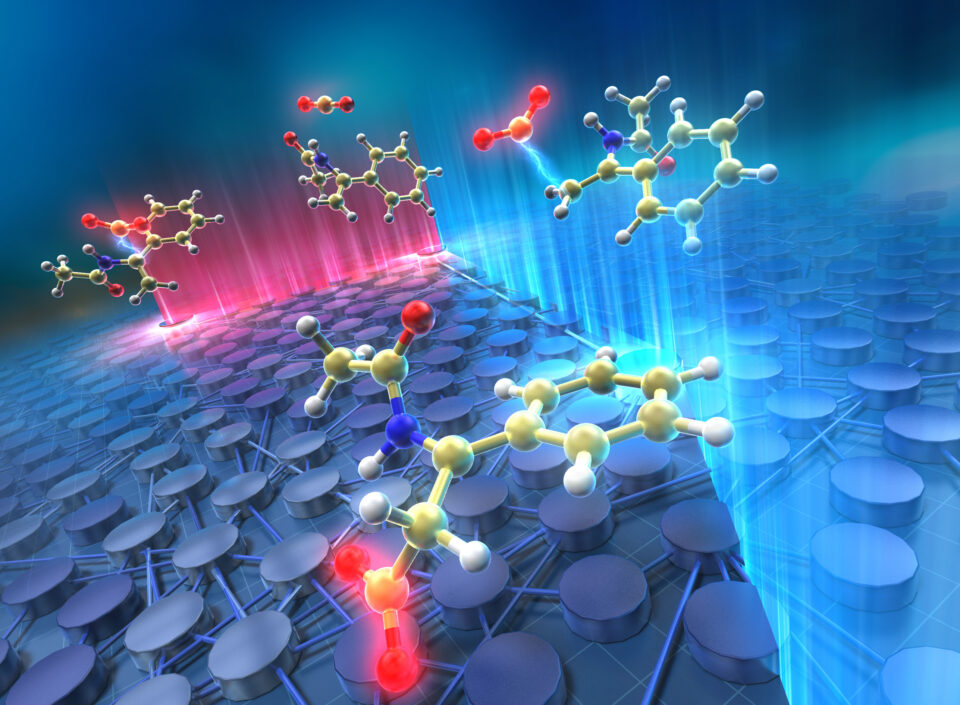The Mita and Maeda groups at ICReDD have developed a novel method for synthesizing β- and γ-amino acids from N-Ac-enamides and N-Ac-allylamines using the CO₂ radical anion as a key intermediate. The CO₂ radical anion can be generated under mild conditions from CO₂ or formate salts via electrochemical or photochemical methods.
Through reaction path exploration using the AFIR (Artificial Force Induced Reaction) method, they theoretically demonstrated that the selective addition of the CO₂ radical anion to the β-position of N-Ac-enamides is both kinetically and thermodynamically favorable. Experimentally, the synthesis of β-amino acids was successfully achieved under both electrochemical and photochemical conditions, showing high functional group tolerance across a variety of substrates. Furthermore, the synthesis of γ-amino acids from N-Ac-allylamines was also successfully carried out under photochemical conditions.
In addition, it was demonstrated that the synthesized β- and γ-amino acids can be obtained as free amino acids by removing the protecting groups. This method provides a sustainable and efficient alternative to traditional amino acid synthesis routes and represents an innovative approach to amino acid synthesis that utilizes CO₂ and formate salts as valuable building blocks in organic synthesis.


